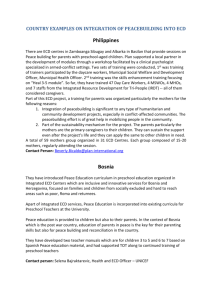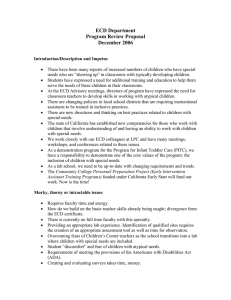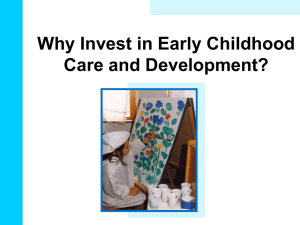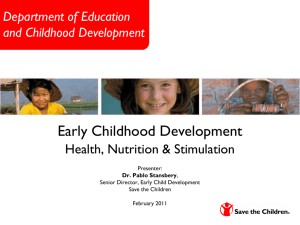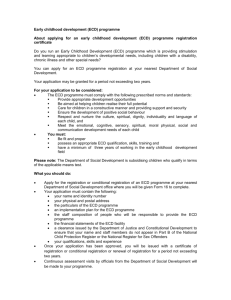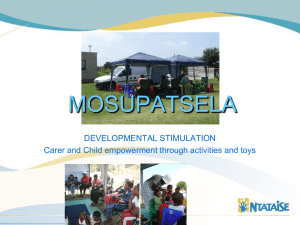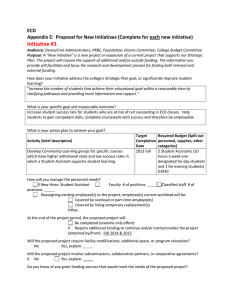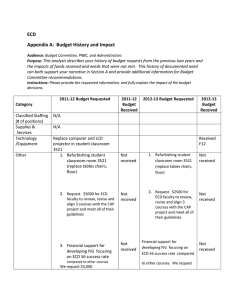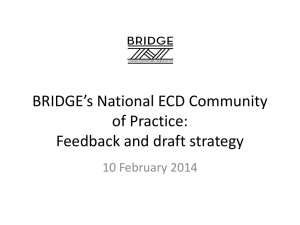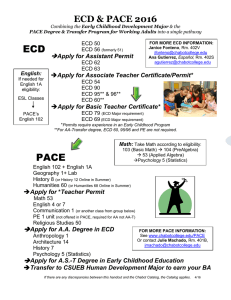Lorayne Excel Pres - What Constitutes Quality in ECD
advertisement
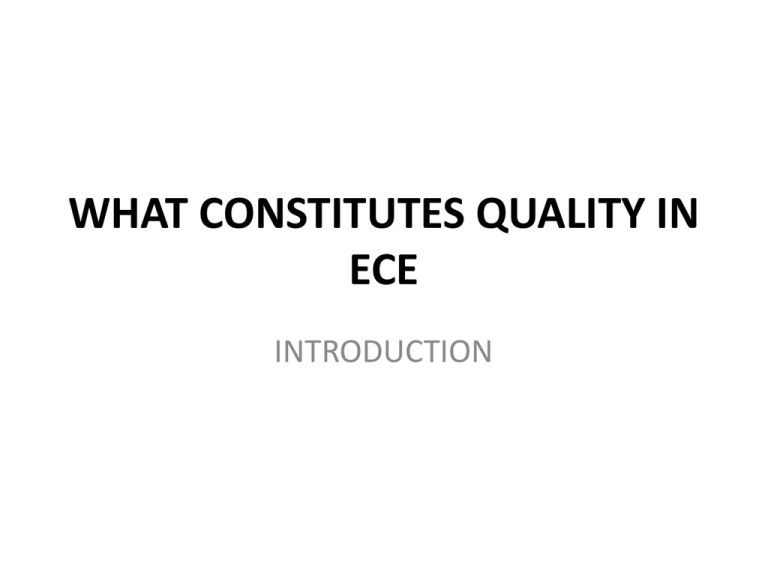
WHAT CONSTITUTES QUALITY IN ECE INTRODUCTION PURPOSE • To begin a discussion about “What does quality in ECD mean for you in your context” • To explore whether we can come up with a common conception of what quality ECD means for the sector QUALITY • • • • • It is an open-ended concept It is a complex concept It is a subjective concepts Understandings are contested A contemporary understanding of quality acknowledges diversity and the notion of ‘both/and’ rather than the more dualistic ‘either/or’ approach INFLUENCED BY TWO FACTORS External factors - impinge on teachers Factors that are internal to the teacherwill frame and influence practice The teacher factor is probably the most important factor EXTERNAL FACTORS • Administrative arrangements, including school ethos and management • Traditional ideologies • Changing policies • Availability of resources • Training opportunities • Professional activity within the sector • Influence of parents and the local community INTERNAL • Teacher’s ideology • Commitment and personality which combine to make up her professional persona • Teachers’ understandings of children and their constructions of childhood • Teachers’ belief systems, attitudes and values towards teaching and learning will frame and influence their practice. WHAT DO WE KNOW • A developmentally, contextually appropriate and culturally relevant practice is important • Children ought to acquire certain learning characteristics that underpin successful lifelong learning • A curriculum that foregrounds social justice and equity is preferable ASSUMPTIONS WE ARE MAKING • We assume ECD is birth - 9 for the purposes of this discussion GROUP DISCUSSION • Form 8 groups of approximately 5 people per group • Each group to please discuss 2 questions (as allocated) • The BRIDGE fact sheet will be handed out to facilitate the discussions • In your discussions include suggestions for the future as far as possible QUESTIONS 1. What type of support should we provide for pre-service and in-service student teachers/practitioners and post-graduate students, and how could this be done? 2. How do structured play and informal learning contribute to quality ECD? 3. How does our current concept of curriculum contribute to quality in ECD? 4. What do we mean by quality assessment in ECD? 5. Discuss whether an ECD curriculum that favours/emphasises language, literacy and mathematics leads to better quality. 6. Discuss what improvements might enable the current M&E systems to better support quality in ECD. 7. What does partnering with parents contribute to quality in ECD? 8.What place does the children’s voice have in a quality ECD setting?

